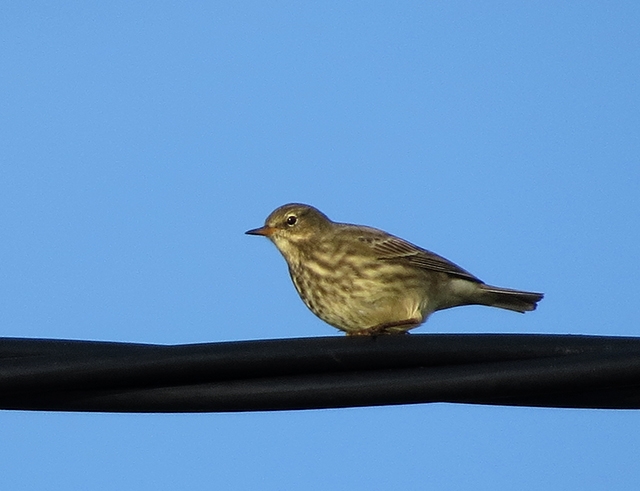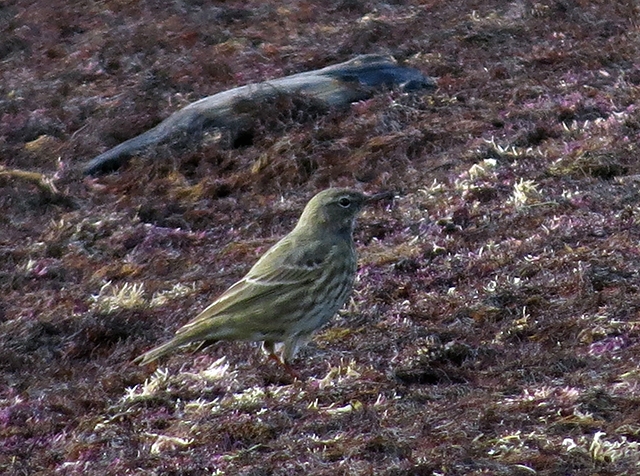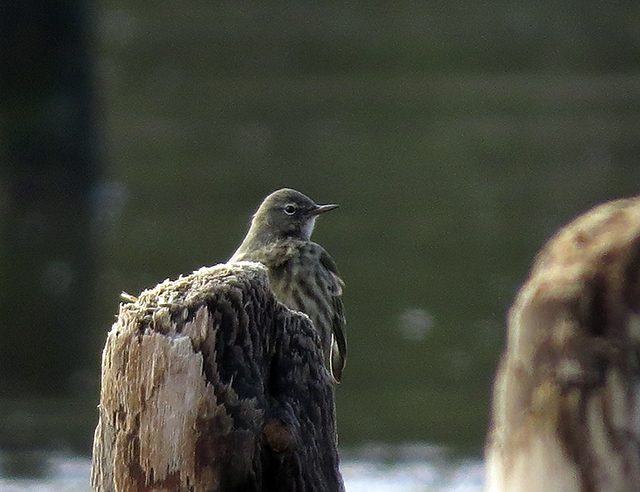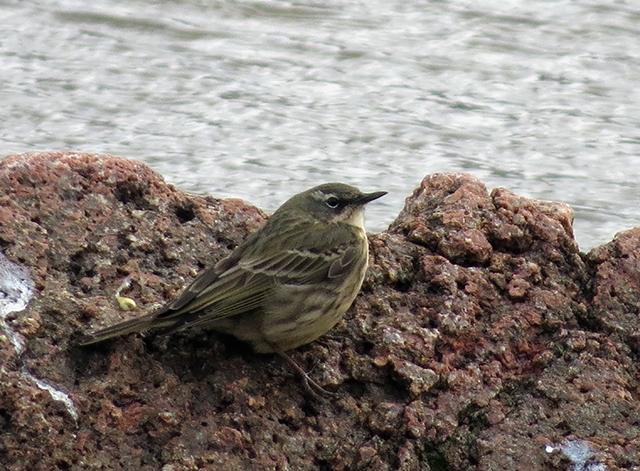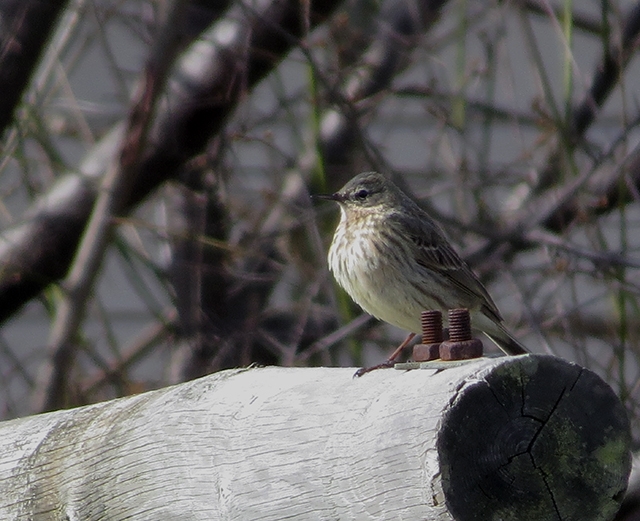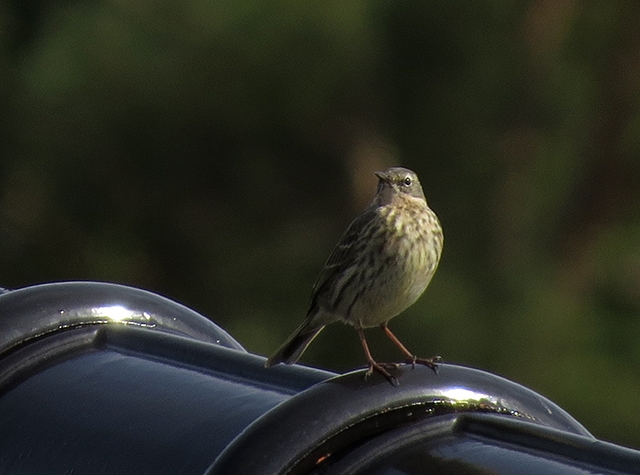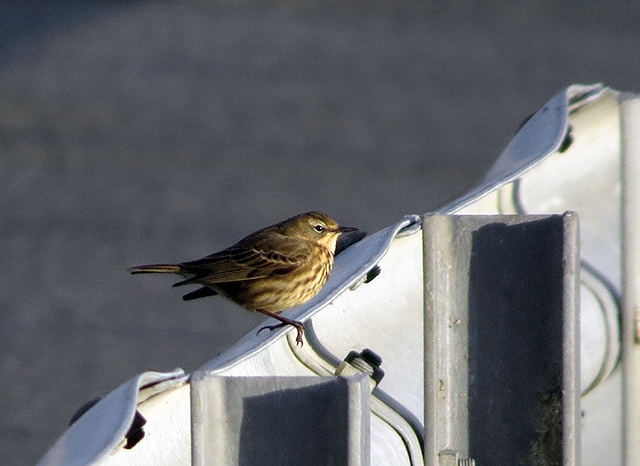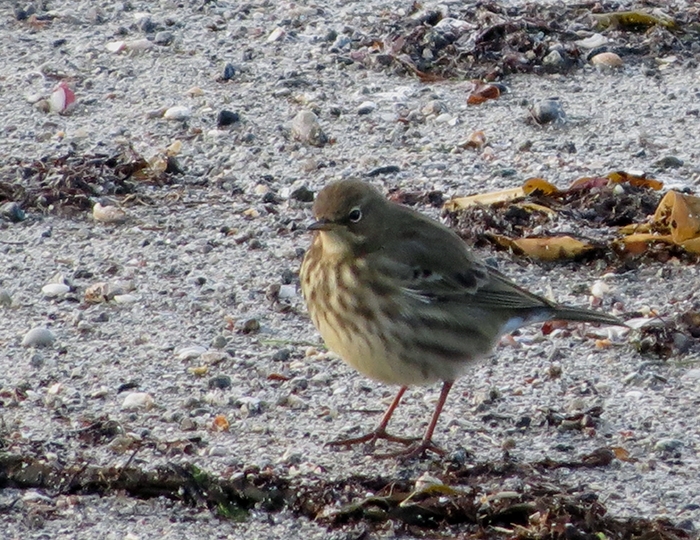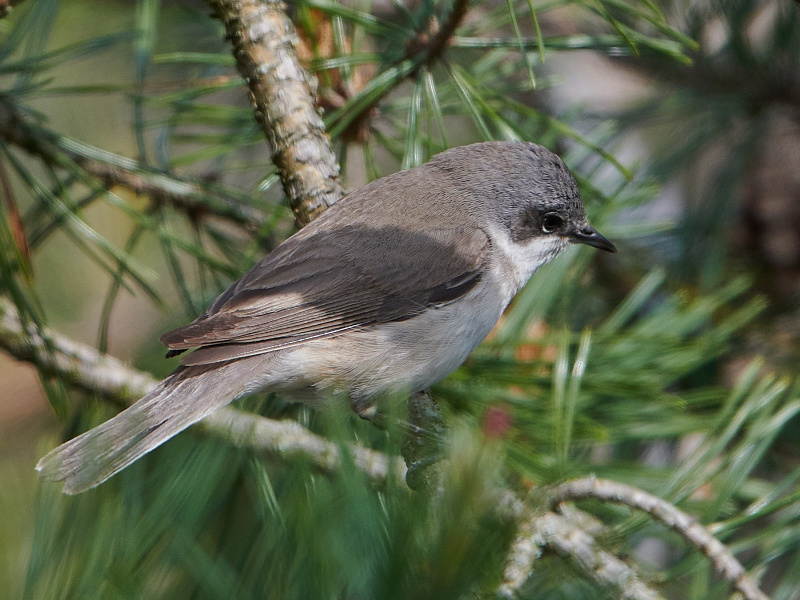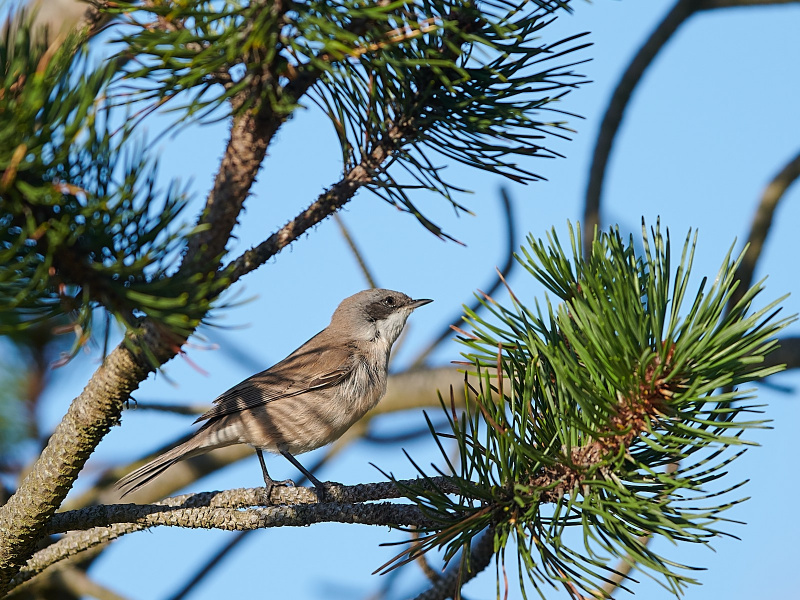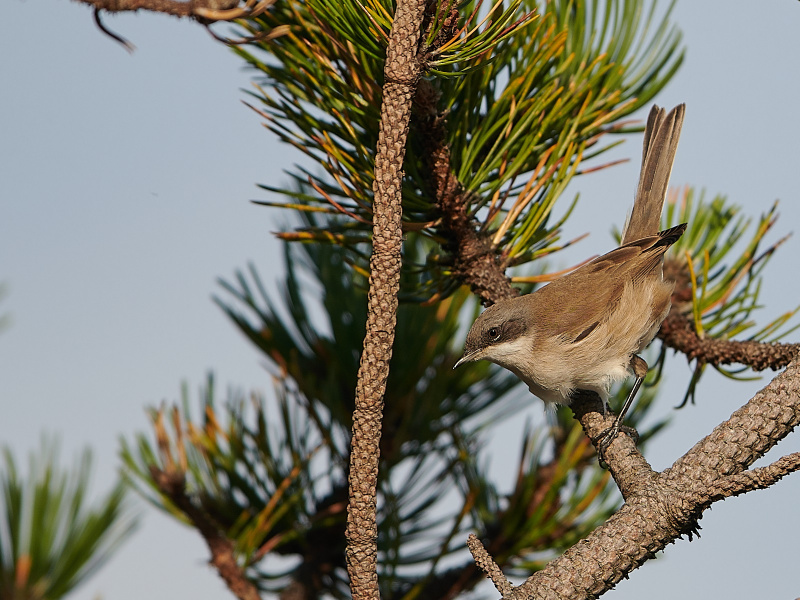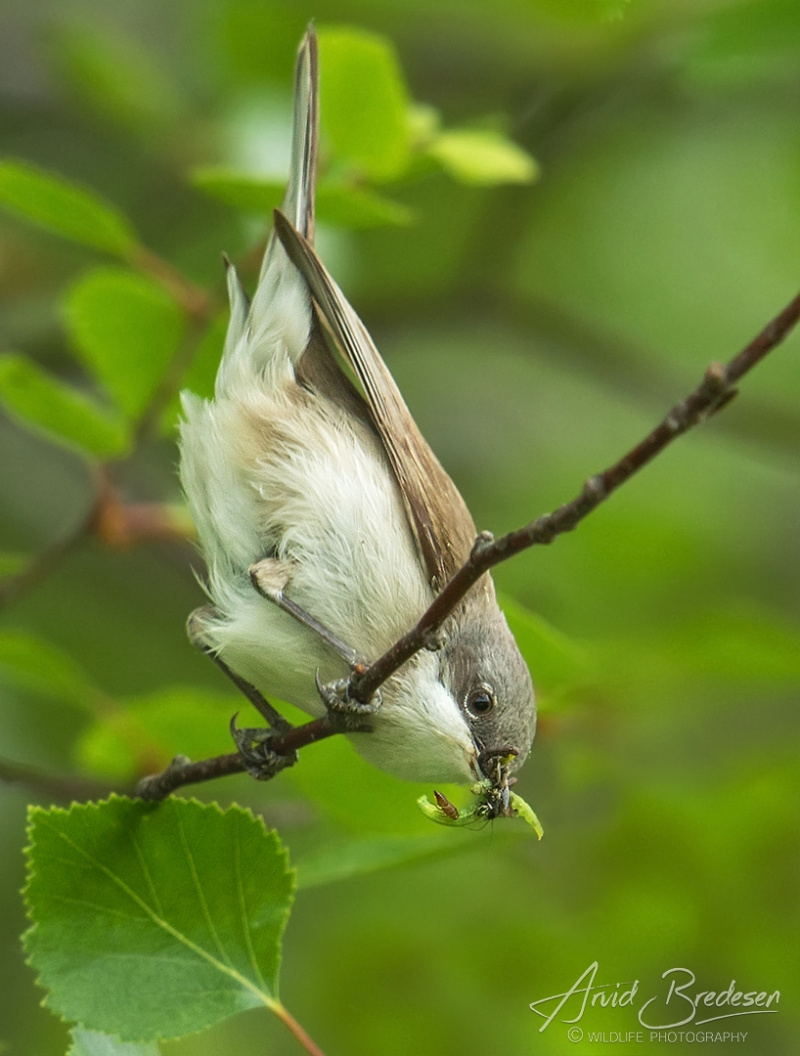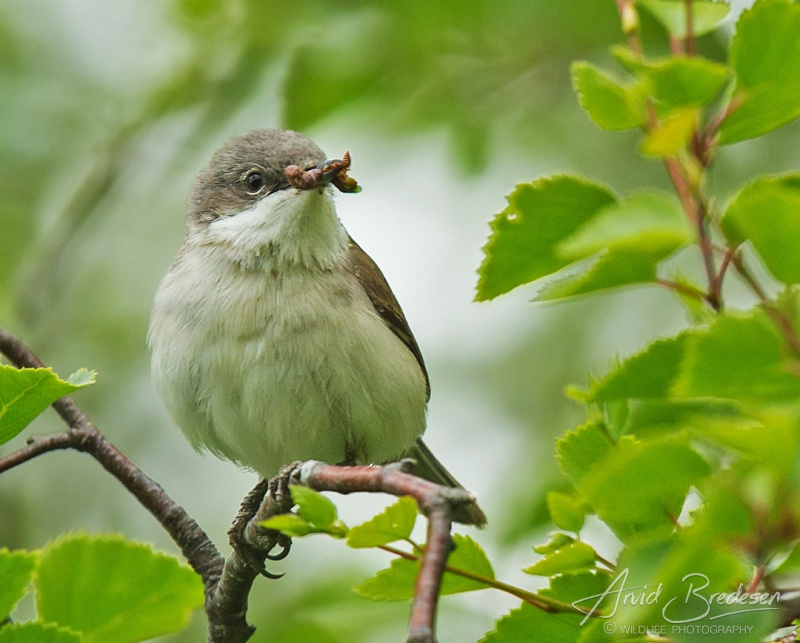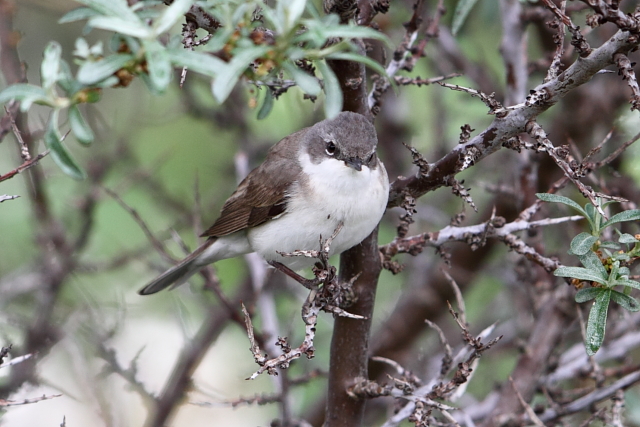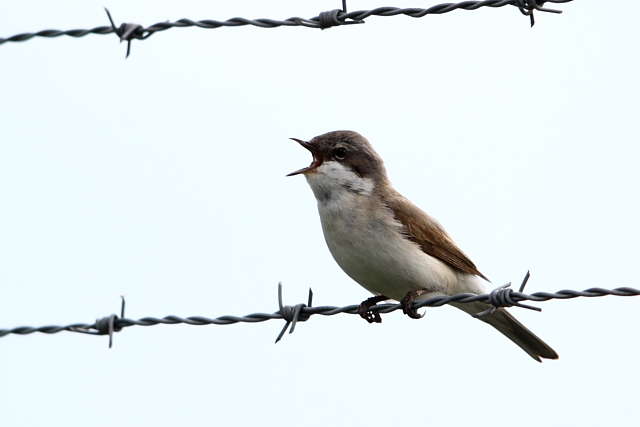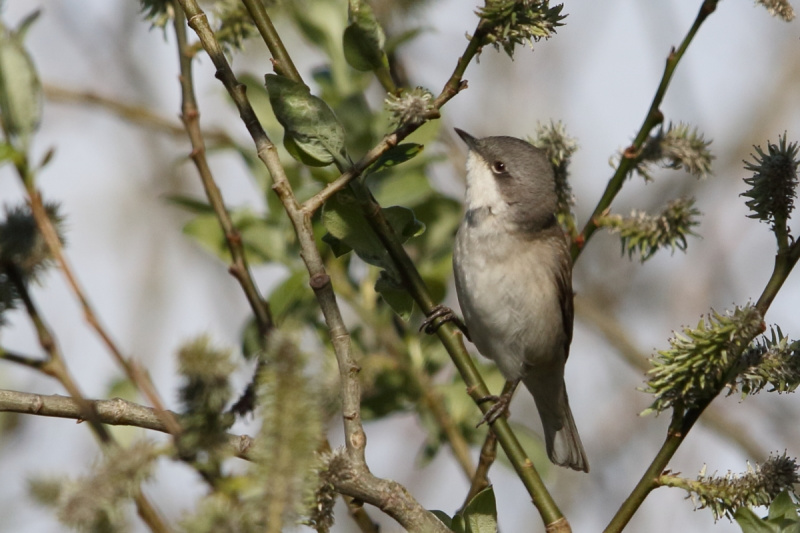Rock Pipit (Anthus petrosus)
Lesser Whitethroat (Curruca curruca)
Dark (or brownish) legs and dark bill (in summer). Diffuse, but heavy streaking below, gives underparts a smoky appearance. The whole bird appears darker than other pipits. Outer tail feathers greyish white. Underside of wings dark. Bill noticeably longer and heavier than in Meadow Pipit. Breeding plumage has less streaked underparts, lighter grey upperparts and pink tinge to chest. Very similar to Water Pipit.
Sound:Song very similar to Meadow Pipit but much louder. Starting notes often with masked double accents, giving it a hammering tone. Terminal trill stronger and more pronounced. Flight call a very sibilant, rippling "weesst", more drawn than in Meadow Pipit. Usually given as clearly separated single calls, but sometimes in quick successions like M. Pipit. Alarm call a sharp "tseet". All sounds very similar to Water Pipit.
Song, contact call, song:
Distribution:
Wikipedia: map (se also Xeno-canto below)
Ecology:Birdlife ecology
Links:
Observation.org Latest observations
Image search Flickr NB! May give other species
CCSounds:Recorded by Michele Peron, Jarek Matusiek,http://www.xeno-canto.org ,CC license
Similar to Common Whitethroat but, with greyish fringes on secondaries and shorter tail and wings. Forehead less steep than in Common WT. Upperparts evenly dark brown with no contrast between shoulders and back. Head grey with slightly darker ear-coverts. Throat and belly white. Legs dark. Tail dark with white edges.
Sound:Song typically consists of two parts. An indistinct chattering and warbling, subsong-like part similar to Whitethroat, which is usually followed by a dry, fast and rattling trill. The trill carries much further than the chattering part. May be difficult to identify if trill is omitted. Warning call a hard "check" similar to Blackcap but slightly softer
Song:
Distribution:
Xeno-canto: map
Ecology:Birdlife ecology
Links:
Observation.org Latest observations
Image search Flickr NB! May give other species
CC
 English
English Albanian
Albanian
 Armenian
Armenian
 Bulgarian
Bulgarian
 Catalan
Catalan
 Croatian
Croatian
 Czech
Czech
 Danish
Danish
 Dutch
Dutch
 Finnish
Finnish
 French
French
 Georgian
Georgian
 German
German
 Greek
Greek
 Hungarian
Hungarian
 Italian
Italian
 Latvian
Latvian
 Lithuanian
Lithuanian
 Macedonian
Macedonian
 Norwegian
Norwegian
 Polish
Polish
 Portuguese
Portuguese
 Romanian
Romanian
 Russian
Russian
 Sami : Lule sami
Sami : Lule sami
 Sami : North sami
Sami : North sami
 Sami : South sami
Sami : South sami
 Scientific names
Scientific names
 Serbian
Serbian
 Spanish
Spanish
 Swedish
Swedish
 Ukrainian
Ukrainian


